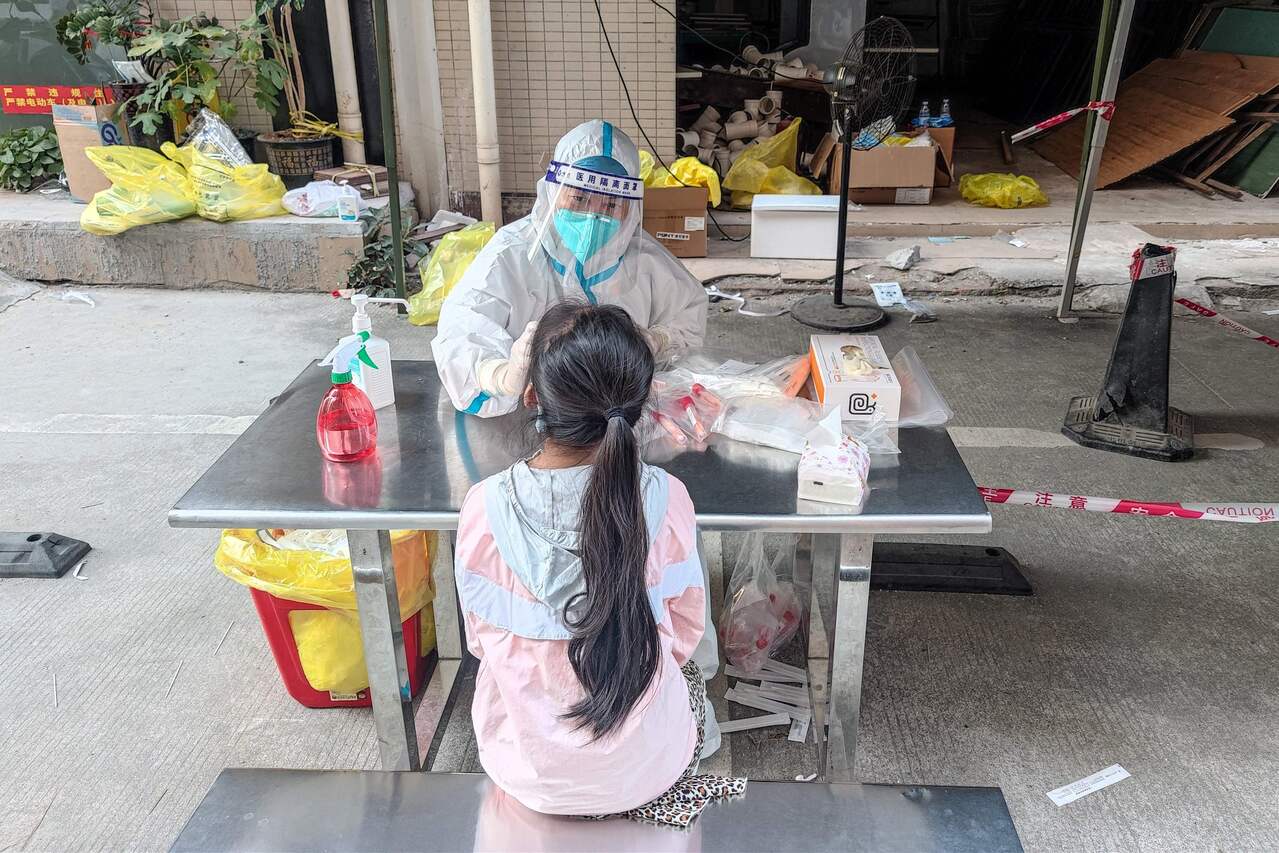Shenzhen lockdown eases as Xi seeks to soften Covid-19 impact
Sign up now: Get insights on Asia's fast-moving developments

Five districts will re-open from the citywide lockdown, allowing workers in those areas to return to their offices.
PHOTO: AFP
Follow topic:
BEIJING (BLOOMBERG) - Shenzhen will allow factories and public transport in several parts of the city to resume operations on Friday (March 18), partially easing a strict lockdown that has paralysed the technology hub bordering Hong Kong as President Xi Jinping pledges to soften the economic impact of his Covid-fighting measures.
A total of five districts will re-open from the citywide lockdown, allowing workers in those areas to return to their offices. Train and bus services will resume after being shut down since Monday.
The rest of the city will still be subject to movement restrictions, the government said.
Shenzhen will strive to bring Covid under control with minimal cost and provide customized solutions to ensure business activities and production, the city's health commission said in a statement published on its website late Thursday.
The partial lifting comes less than a week after the southern tech powerhouse of 17.5 million people was suddenly locked down to quash the spread of the highly infectious omicron variant.
China’s government is seeking to navigate a path that limits disruptions to the world’s second-biggest economy, while holding on to a Covid Zero strategy that’s facing unprecedented challenges.
China has imposed more lockdowns over the past week than at any point in the pandemic, with Langfang, a city near Beijing, Changchun in the north-east and then its surrounding province, Jilin, all put under movement restrictions. Shanghai has also imposed curbs short of a full lockdown.
Mr Xi’s emphasis on the need to insulate against economic damage signals a shift in the country’s zero-tolerance strategy, and follows a series of policy changes.
China approved Pfizer Inc.’s antiviral pill, allowed the use of rapid-antigen tests to confirm infections, and permitted mild and asymptomatic Covid-patients to quarantine in isolation facilities to avoid overwhelming hospitals.
"Those guidelines signal the loosening of some of the very harsh approaches," said Ms Roberta Lipson, chief executive officer of New Frontier Health Corp, which owns United Family Healthcare, a private hospital provider in China.
"Dynamic Covid Zero is already a step toward a more open policy and these new strategies will help us step by step to a closer ‘living with Covid’ kind of policy."
In a sign of a potential blueprint, iPhone maker Foxconn Technology Group was allowed to partially resume its operations in Shenzhen on Wednesday by deploying a so-called closed loop system similar to one implemented successfully during the Beijing Winter Olympics.
The signal to cushion the economy comes as the country grapples with its worst outbreak in more than two years. Domestic Covid infections jumped on Friday to over 4,000 after more cases were found in the northeastern province of Jilin.
In the nation’s financial hub of Shanghai, cases topped 250 on Friday as authorities started testing what they considered risky neighbourhoods, and officials said they will expand testing to the rest of the city in the next three days.
They also urged its nearly 25 million residents to avoid going out and work from home if they can.

